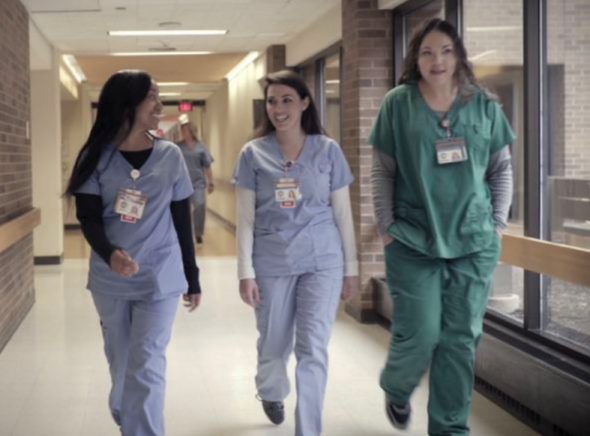Consider a Career as Mental Health Nurse
Visit our job fair and learn what a rewarding career this can be.
Many people in society are affected by mental illness. According to the National Alliance on Mental Illness (NAMI), one in five adults — that’s 43.8 million — experience mental illness in any given year. Youth are also affected: one in five aged 13-18 experience a severe mental disorder.
October 7-13 is Mental Illness Awareness Week. In addition to shining a light on mental illness, the week also offers an opportunity for behavioral health nurses to reflect on the impact they have in the lives of the people they serve. As the Director of Nursing with the Milwaukee County Behavioral Health Division, I see first hand the impact nurses have on people every day.
When I began my nursing career in the 1980s, I, like many of my classmates, looked forward to working in a medical surgical area so I could perfect my nursing skills. This meant starting intravenous (IV) care, cleaning wounds and learning electrocardiogram procedures. These were just a few of the technical skills I needed to master in order to be a good professional nurse.
But as I worked at my first few nursing jobs, I learned it took more than technical skills to be a nurse. You had to be an active listener, know how to assess non-verbal body language, and exercise other psycho-social skills to help ensure clear communication contributes to a patient recovery. I realized that using these skills and working with underserved populations, such as those with mental illness, was my true calling. After working in the industry as a nurse for many years, I changed my focus, and took these basic skills with me to the Behavioral Health Division.
As a mental health nurse, the challenges are high but the rewards are even higher. There’s a true need for our services. NAMI cites research that among adults with a serious mental illness, 62.9 percent received mental health services in the past year. That’s where we come in.
The Milwaukee County Behavioral Health Division promotes hope through innovative recovery programs in behavioral health wellness, recovery, research and education for individuals and families. Being a mental health nurse means having the compassion, courage and drive to take on new challenges, knowing that it may be hard, but that you are making a difference in the lives of your patients who need that extra care.
Serving as a mental health nurse means using your communication skills to help your patients get well. But it also means using highly refined assessment skills to be able to pick up subtle changes in your patient’s behavior, to know when to notify the physician that there is a significant change in condition without having a lot of equipment to help you “make your case” to the doctor. As a mental health nurse, it’s just you. These are just a few of the challenges of working with behavioral health clients that makes mental health nursing such a fascinating and rewarding career.
As we care for our patients, our focus it to provide support, educate the public and advocate for equal care. If you’re a nurse, I encourage you to reflect on Mental Health Awareness Week and take a leap to check out the Milwaukee County Behavioral Health Division Nursing Job Fair on October 18 from 2-5 p.m. We’ll have nurses on site who can share what makes their careers so rewarding. We need nurses who have what it takes to make a difference in the lives of Milwaukee County residents with mental health needs. It’s not easy, but the impact you will have on others is a priceless reward.
For more information, please visit https://county.milwaukee.gov/EN/DHHS/BHD/Nursing.
Linda Oczus, Director of Nursing, Milwaukee County Behavioral Health Division























